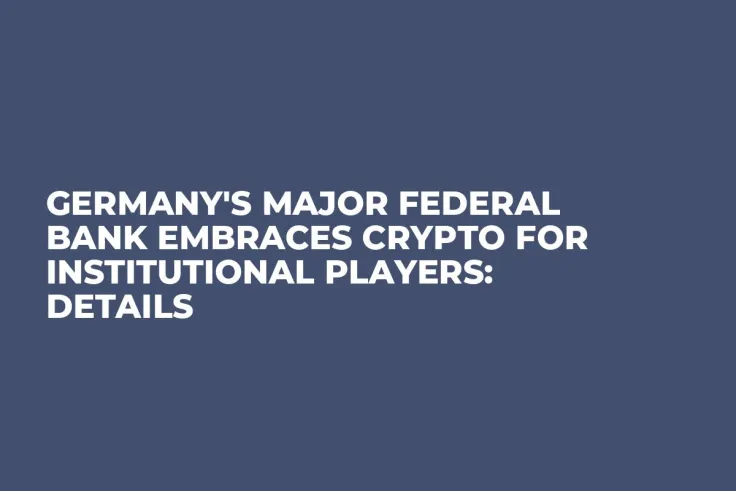
Disclaimer: The opinions expressed by our writers are their own and do not represent the views of U.Today. The financial and market information provided on U.Today is intended for informational purposes only. U.Today is not liable for any financial losses incurred while trading cryptocurrencies. Conduct your own research by contacting financial experts before making any investment decisions. We believe that all content is accurate as of the date of publication, but certain offers mentioned may no longer be available.
Germany's financial landscape is set for a significant transformation as the country's largest federal bank announces plans to dive into the cryptocurrency market, targeting institutional investors.
This groundbreaking move by the bank reflects the growing acceptance and adoption of digital assets within the traditional financial sector.
According to Bloomberg, Germany's largest federal bank has announced its plans to offer cryptocurrency custody services to institutional investors, marking a significant milestone in the integration of digital assets into traditional banking systems.
Landesbank Baden-Württemberg (LBBW), Germany's largest federal bank, intends to begin offering cryptocurrency custody services in collaboration with the Bitpanda exchange.
LBBW and Bitpanda announced Monday that they will begin offering crypto custody to institutional and corporate clients in the second half of 2024.
Germany's largest federal bank's foray into the crypto market is expected to open up new avenues for institutional investors to access digital assets. With cryptocurrencies gaining popularity as an asset class, institutions are increasingly seeking exposure to this burgeoning sector.
German banks and asset managers have grown more involved in crypto assets, providing custodial services and developing their products for the asset class ahead of EU laws that are expected to take effect later this year. Deutsche Bank is building its digital asset custody service, and its DWS unit is part of a consortium that is developing a euro-denominated stablecoin.
As cryptocurrencies gain traction and recognition around the world, the move is expected to spur even more growth and innovation in the sector, resulting in increased investment and interest from institutional investors.

 Gamza Khanzadaev
Gamza Khanzadaev Arman Shirinyan
Arman Shirinyan